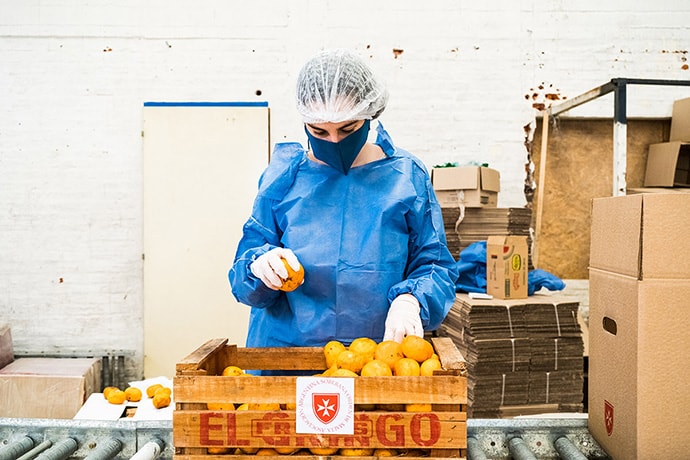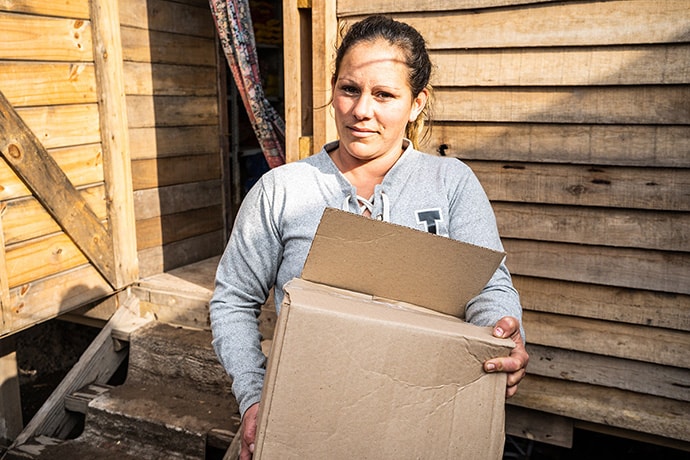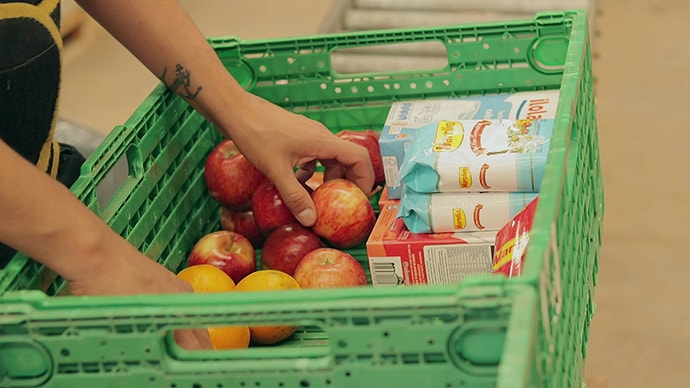By Joel Putnam, Global Partnerships

Photo: Nilus
Global Partnerships is a GlobalWA member and a nonprofit impact-first investment fund manager dedicated to expanding opportunity for people living in poverty. We’re sharing their most-recently published Impact Brief below:
The Challenge
The number of people facing hunger has been rising for nearly a decade. Close to 30 percent of the global population now faces moderate to severe food insecurity, with households living in poverty or conflict zones at especially high risk.[1]
There are two key factors constraining access to healthy food: availability and affordability.
- Availability challenges often appear in two forms, particularly in urban areas: food deserts, where there are few or no places to buy food; and food swamps, where stores only sell unhealthy junk food.
- Affordability encompasses the absolute cost of food and the cost of a healthy diet relative to household income. In Latin America and the Caribbean, approximately 23 percent of the population cannot afford a healthy diet, and in sub-Saharan Africa that rate rises to a staggering 84 percent.[2]
As a result, households living in poverty spend a disproportionate amount of time and income obtaining food that is insufficient in volume and/or nutrients, with particularly harmful effects on women and children. In every region of the world, women are more food insecure than men.[3] They often eat last and least, and are likely to carry the burden of finding, acquiring, and preparing food.[4] Children who don’t get enough nutritious food are at risk of wasting, stunting, and vitamin deficiency, leading to lifelong developmental issues and higher risk of serious illness or death.[5]
The Opportunity
Social enterprises can improve the availability and affordability of food for households living in poverty. One such social enterprise is Nilus Global Holdings (Nilus), an early-stage company and partner within Global Partnerships’ new Food Access initiative. Nilus delivers groceries at lower costs to food deserts and food swamps in Mexico and Argentina. The company buys “less than perfect” produce and near-expiration date products in bulk from suppliers, which they deliver direct to customers for 20 to 25 percent less than the price of alternatives. Nilus identifies and trains community leaders (predominantly women) who work as trusted, last mile agents; subscribing customers and facilitating online purchases and delivery. This distribution network and use of technology enables low-income customers to save money and time.

Photo: Nilus
The Impact
A 2024 survey of Nilus’ customer base in Mexico City[6] confirmed that the early-stage company reaches customers who need their services and creates a positive impact in their lives. Customers were more than twice as likely than the local population to live on under $5.50 per person, per day,[7] nearly 70 percent reported they could not easily find a good alternative, and 80 percent were female (reflecting women’s key role in household decisions about food).
The survey found that 85 percent of customers reported that their quality of life had improved thanks to working with Nilus. Majorities of customers reported that purchasing groceries through Nilus had saved them both money and time — the latter of which is especially valuable for women, who often carry a disproportionate load of domestic work.[8] Benefits deepened for surveyed customers who spent a higher proportion of their grocery budget with Nilus. These customers were more likely to report that the amount of money and time they spent purchasing groceries had “very much” decreased and that working with Nilus had “very much” improved their lives.
Households who save time and money experience both improved economic resilience and food security. Majorities of surveyed customers reported that, thanks to working with Nilus, they spent less time worrying about their finances, their savings increased, their ability to manage their finances increased, and they are now more confident that they can feed their families with nutritious food on a regular basis. That increase in reliable, nutritious food can, in turn, improve health outcomes.

Photo: Nilus
The Implications
Nilus’ impact illustrates the promise of social enterprises in increasing the availability and affordability of healthy food for people living in poverty. The early stages of a company are critical in laying the foundation to scale deep and inclusive impact. Yet early-stage social enterprises are often constrained by insufficient access to affordable capital and by their limited capacity to define, effectively measure, and continuously improve their impact.
For this reason, Global Partnerships’ new Impact-First Venture Loan Pool utilizes recoverable grants to offer early-stage enterprises low-cost debt paired with impact advisory support from the Global Partnerships team. In doing so, the Impact-First Venture Loan Pool aims to strengthen partners like Nilus, enabling them to potentially attract additional capital and grow their impact for households living in poverty.
[1] “The Sustainable Development Goals Report 2023: Special Edition.” United Nations Department of Economic and Social Affairs, 2023. https://desapublications.un.org/publications/sustainable-development-goals-report-2023-special-edition.
[2] “DataBank: Food Prices for Nutrition.” World Bank Group, 2021. https://databank.worldbank.org/source/food-prices-for-nutrition.
[3] “Exploring Socio-economic Determinants of the Gender Gap and the Role of COVID-19 in the UNECE Region.” Food and Agriculture Organization of the United Nations, 2023. https://unece.org/sites/default/files/2023-04/F6_WP24_Macchioni_EN.pdf.
[4] “Left Out and Left Behind: Ignoring Women Will Prevent Us From Solving the Hunger Crisis.” CARE, August 18, 2020. https://www.care-international.org/files/files/LeftOutandLeftBehind.pdf.
[5] “Malnutrition in Children.” World Health Organization, accessed July 16, 2024. https://www.who.int/data/nutrition/nlis/info/malnutrition-in-children.
[6] Based on responses from 277 Nilus clients in a 2024 study by 60 Decibels, Inc.
[7] Comparing to the poverty rate of Distrito Federal, Mexico of 17.7% <$6.85 PPP/person/day; “Geospatial Poverty Portal” The World Bank, 2017. https://pipmaps.worldbank.org/en/data/datatopics/poverty-portal/poverty-geospatial?dataset=PovertyRate6.85-gsap&zoomLevel=7&lat=19.80805412808859&lng=-98.51989746093751.
[8] “Why Addressing Women’s income and Time Poverty Matters for Sustainable Development.” UN Women, 2019. https://www.unwomen.org/sites/default/files/Headquarters/Attachments/Sections/Library/Publications/2019/World-survey-on-the-role-of-women-in-development-2019.pdf.